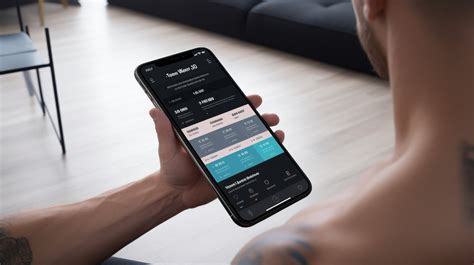The world of healthcare is undergoing a significant transformation, driven by the increasing use of smart devices. These innovative tools are revolutionizing the way healthcare is delivered, making it more accessible, efficient, and effective. From remote monitoring to personalized medicine, smart devices are changing the face of healthcare as we know it.
What are Smart Devices in Healthcare?

Smart devices in healthcare refer to the use of digital technologies, such as wearable devices, mobile apps, and sensors, to monitor and manage patients' health. These devices can track a range of health metrics, including heart rate, blood pressure, and blood glucose levels, providing healthcare professionals with real-time data to make informed decisions.
Benefits of Smart Devices in Healthcare
The benefits of smart devices in healthcare are numerous. Some of the most significant advantages include:
- Improved patient outcomes: Smart devices enable healthcare professionals to monitor patients remotely, reducing the need for hospitalizations and improving health outcomes.
- Increased efficiency: Smart devices automate many tasks, freeing up healthcare professionals to focus on more complex and high-value tasks.
- Enhanced patient engagement: Smart devices empower patients to take a more active role in their healthcare, improving adherence to treatment plans and promoting healthy behaviors.
- Reduced costs: Smart devices can reduce healthcare costs by minimizing the need for hospitalizations, reducing the length of hospital stays, and improving resource allocation.
Types of Smart Devices in Healthcare

There are several types of smart devices used in healthcare, including:
- Wearable devices: Wearable devices, such as fitness trackers and smartwatches, track patients' physical activity, heart rate, and other health metrics.
- Mobile apps: Mobile apps, such as telemedicine platforms and medication adherence apps, enable patients to manage their health remotely.
- Sensors: Sensors, such as those used in smart homes, track patients' vital signs and other health metrics, providing healthcare professionals with real-time data.
Examples of Smart Devices in Healthcare
Some examples of smart devices used in healthcare include:
- Apple Watch: The Apple Watch is a wearable device that tracks patients' physical activity, heart rate, and other health metrics.
- Fitbit: Fitbit is a wearable device that tracks patients' physical activity, sleep patterns, and other health metrics.
- Omron: Omron is a blood pressure monitor that tracks patients' blood pressure and other health metrics.
Challenges and Limitations of Smart Devices in Healthcare

While smart devices have the potential to revolutionize healthcare, there are several challenges and limitations to consider. Some of the most significant challenges include:
- Data security: Smart devices generate vast amounts of data, which must be protected from cyber threats and data breaches.
- Interoperability: Smart devices must be able to communicate with each other and with electronic health records (EHRs) to provide a seamless patient experience.
- Regulatory frameworks: Regulatory frameworks must be developed to ensure the safe and effective use of smart devices in healthcare.
Future of Smart Devices in Healthcare
The future of smart devices in healthcare is exciting and rapidly evolving. Some of the most significant trends and developments include:
- Artificial intelligence: Artificial intelligence (AI) is being used to analyze data from smart devices, providing healthcare professionals with insights and recommendations to improve patient care.
- Internet of Things (IoT): The IoT is enabling smart devices to communicate with each other and with other devices, creating a seamless and interconnected healthcare system.
- 5G networks: 5G networks are enabling faster data transfer rates and lower latency, enabling the widespread adoption of smart devices in healthcare.





Conclusion
Smart devices are revolutionizing healthcare, enabling healthcare professionals to provide more efficient, effective, and patient-centered care. While there are challenges and limitations to consider, the future of smart devices in healthcare is exciting and rapidly evolving. As the use of smart devices continues to grow, we can expect to see improved patient outcomes, increased efficiency, and reduced healthcare costs.
What are smart devices in healthcare?
+Smart devices in healthcare refer to the use of digital technologies, such as wearable devices, mobile apps, and sensors, to monitor and manage patients' health.
What are the benefits of smart devices in healthcare?
+The benefits of smart devices in healthcare include improved patient outcomes, increased efficiency, enhanced patient engagement, and reduced costs.
What are some examples of smart devices used in healthcare?
+Some examples of smart devices used in healthcare include the Apple Watch, Fitbit, and Omron blood pressure monitor.
